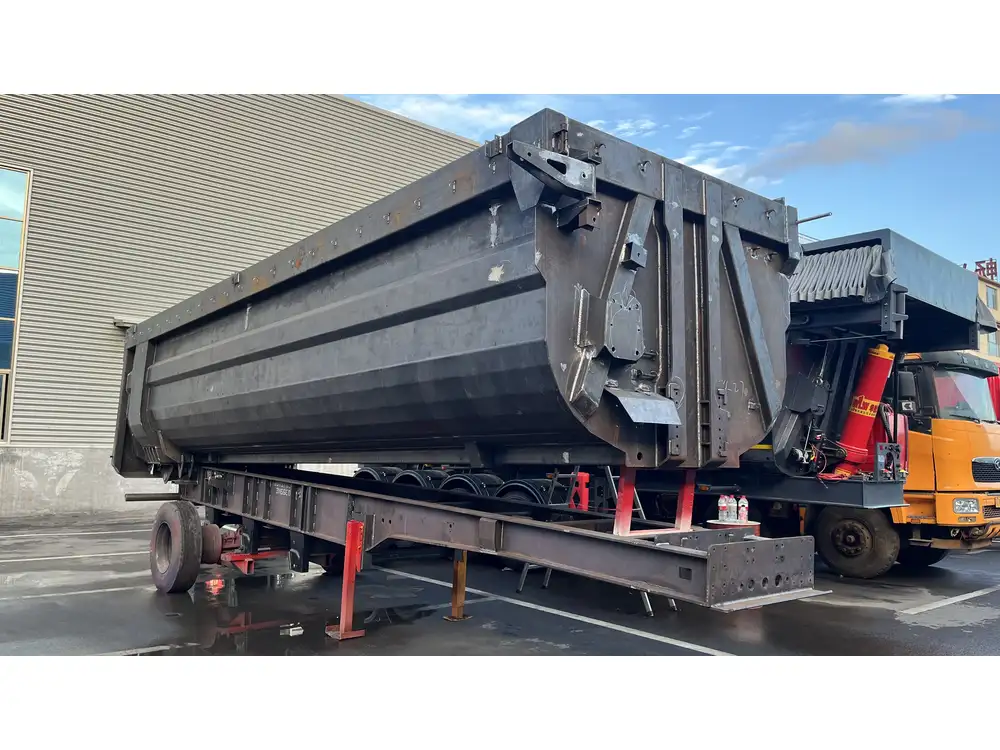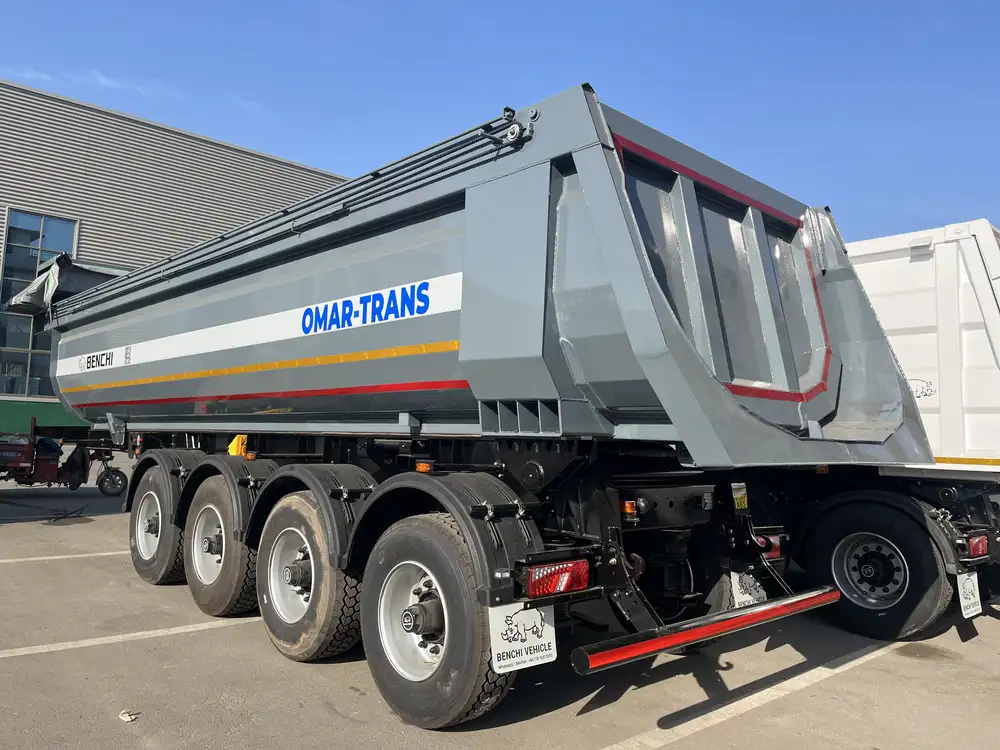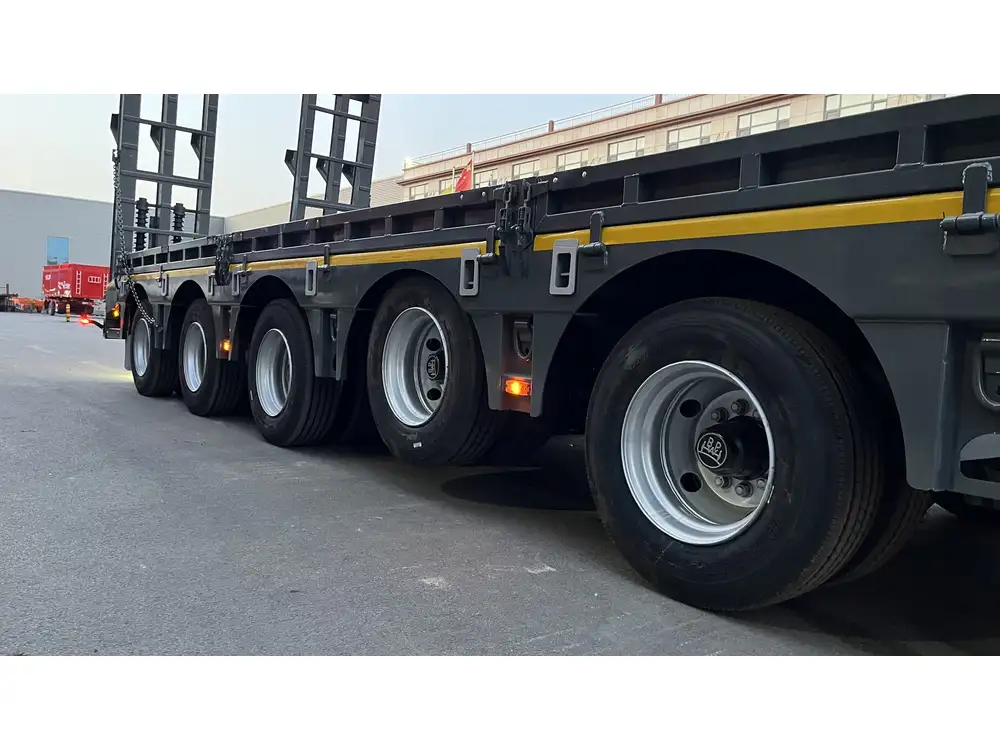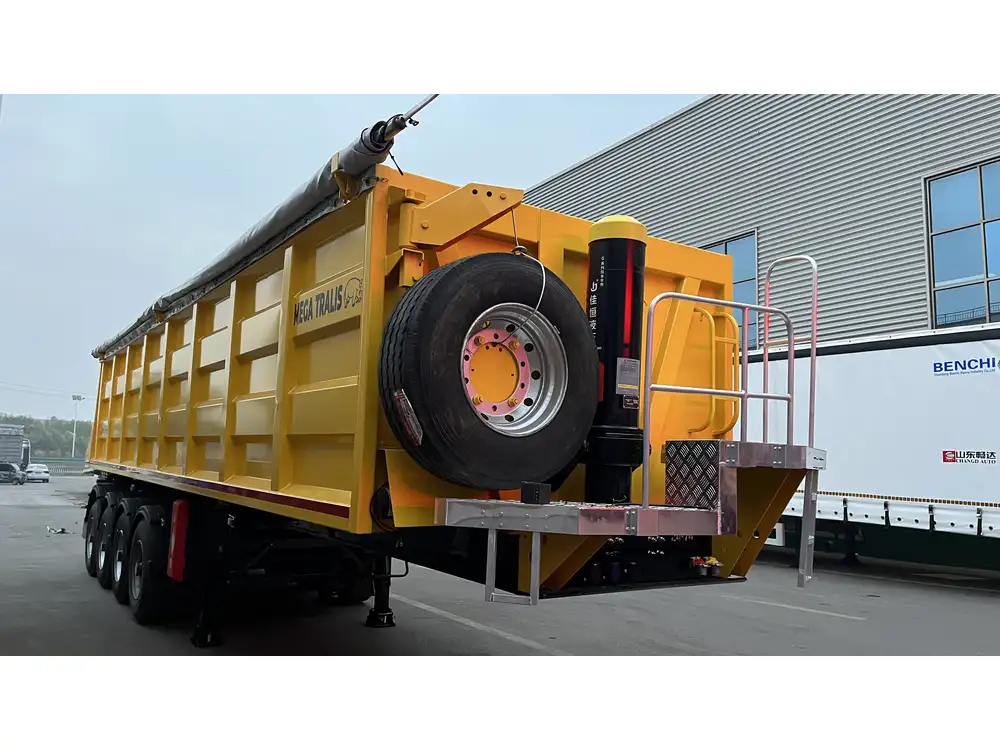In the complex world of towing, it is essential to understand the capabilities and limitations of various vehicles. For many, the quintessential question arises: Can a pickup truck tow a semi-trailer? This inquiry is significant for businesses, transport companies, and logistics professionals who need to optimize their fleets for efficiency.
Towing Capacity of Pickup Trucks
Understanding Towing Capacity
Towing capacity refers to the maximum weight a vehicle can safely tow. It is determined by the vehicle’s engine strength, suspension, transmission, and braking system. Manufacturers provide this information, typically outlined in the vehicle’s owner manual or specifications guide.

Key Factors Influencing Towing Capacity:
Vehicle Class: Pickup trucks vary widely in performance. Heavy-duty models such as the Ford F-350 or Ram 3500 can handle more weight than light-duty counterparts like the F-150 or Chevrolet Silverado 1500.
Engine Specifications: A truck’s engine power plays a pivotal role. Diesel engines, for instance, usually offer better torque compared to gasoline engines, translating to higher towing capacities.
Axle Ratio: The gear ratio in a truck’s differential influences its towing capability. A higher numerical ratio usually provides more torque, making it easier to tow heavy loads.
Chassis Configuration: The design of the chassis, including weight distribution and frame strength, will affect a truck’s overall towing ability.
Typical Towing Capacities
| Pickup Truck Model | Engine Type | Towing Capacity (lbs) |
|---|---|---|
| Ford F-150 | 3.3L V6 | 8,200 |
| Ram 1500 | 5.7L HEMI V8 | 12,750 |
| Ford Super Duty F-250 | 6.7L Diesel | 20,000 |
| Chevrolet Silverado 3500 | 6.6L Diesel | 36,000 |
Heavy-Duty Pickup Trucks
For towing semi-trailers, only heavy-duty pickup trucks with exceptional towing capacity, such as the Ford F-450 or Chevrolet Silverado 3500 HD, can potentially manage small semi-trailers or trailers designed for particular light-duty applications.

Semi-Trailer Specifications
Understanding Semi-Trailers
Semi-trailers differ considerably from traditional towing trailers. These are typically characterized by their substantial length and weight. A standard semi-trailer can weigh up to 22,000 pounds when empty and, when fully loaded, can reach gross weights of up to 80,000 pounds or more, depending on regulations.
Key Attributes:
Dimensions: Typical semi-trailers range in length from 28 to 53 feet, significantly affecting their towing dynamics.
Weight Distribution: The weight is unevenly distributed due to its design, necessitating stronger towing vehicles to manage it effectively.
Braking Requirements: Semi-trailers often include air brake systems that require compatible towing vehicles to ensure safety during transit.

Towing Considerations for Semi-Trailers
The combined weight of the truck and trailer must stay within a legal limit. For instance, even if a pickup truck boasts a high towing capacity, the total weight may exceed regulatory limits, leading to potential legal and safety issues.
Legal and Safety Considerations
Regulatory Compliance
Each state enforces specific laws regarding towing capacities, including weight limits and towing configurations. Before a pickup truck attempts to tow a semi-trailer, it must meet:
State Regulations: Compliance with local traffic laws to avoid penalties.
License Requirements: Depending on the vehicle’s gross combined weight, certain licenses may be required.

Safety Measures
The act of towing a semi-trailer with a pickup truck requires meticulous planning and preparation. Some vital safety measures include:
Proper Hitching: Utilizing the correct hitch type designed for heavy towing.
Load Distribution: Ensuring that the load is balanced across the trailer to prevent swaying or instability.
Braking System: Confirming that the pickup truck is equipped with a compatible brake system to engage with the semi-trailer’s brakes.
Alternative Towing Vehicles
When Pickup Trucks Fall Short
Given the enormous size and weight of semi-trailers, it is often more practical to utilize purpose-built towing vehicles. Below are some alternatives:
Heavy-Duty Trucks: Designed specifically to handle large loads, vehicles like the Freightliner Cascadia or Kenworth W900 offer superior power and stability.
Tractors: Conventional tractor units provide specialized towing capabilities, equipped with robust engines and the required infrastructure for stable towing.

Pros and Cons of Towing Semi-Trailers with Pickup Trucks
| Pros | Cons |
|---|---|
| Can be cost-effective for light loads | Often exceeds weight limits |
| Accessible for small businesses | Potentially unsafe |
| More versatile for varied tasks | May require additional licensing |
| Easier to maneuver in tight spaces | Limited to shorter trailers |
FAQs: Towing a Semi-Trailer with a Pickup Truck
1. Is it legal to tow a semi-trailer with a pickup truck?
The legality hinges on numerous factors, including the truck’s towing capacity and local laws regarding gross combined vehicle weight.

2. What weight can a pickup truck safely tow?
This varies from truck to truck. Referencing the manufacturer’s specifications is essential to determine safety limits.
3. Do I need a special license to tow a semi-trailer?
In many jurisdictions, a special license or certification might be necessary if the combined weight exceeds specific limits.
4. What are the risks involved in towing a semi-trailer with a pickup truck?
Amplified risks include loss of control, brake failure, and potential legal ramifications due to compliance violations.

Conclusion
In summary, while a pickup truck can potentially tow specific configurations of lightweight semi-trailers, it is generally not advisable for heavy or full-size models due to stringent safety and legal constraints. Whether you are considering operational flexibility or assessing logistical needs, carefully evaluate your options, including transitioning to appropriately equipped towing vehicles for larger loads. Understanding the intersection of capability and regulation is vital for optimizing efficiency and ensuring safety in your towing endeavors.
Ultimately, it is imperative to make informed decisions anchored on comprehensive research and compliance with relevant guidelines, ensuring that any towing activities not only meet business requirements but also uphold safety standards paramount in today’s transportation landscape.



